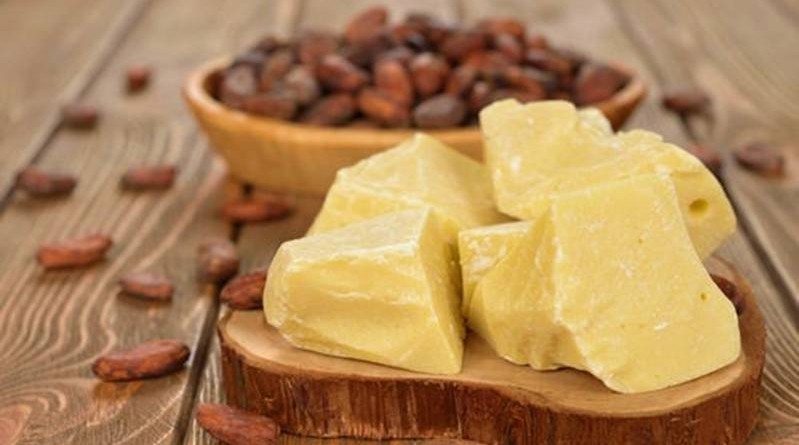Shea Butter Production and Export: A goldmine begging for exploration
Nigeria economy is basically dependent on oil, which successive governments have conspicuously shown much interest in its exploration, while other sectors are given little or no attention.
Governments over the years had promised to prioritize agriculture as a way of diversifying the country’s economy from oil to non oil production and exportation, thereby creating jobs, strengthening the economy and also earning foreign exchange.
It is therefore no more news that the Nigerian government over the years has been paying lip service to agricultural development, as no tangible effort has been made to improve the sector.
Nigeria, Niger State precisely, contributes over 57 per cent of global Shea butter needs, yet other African countries record high number of Shea butter exportation than Nigeria.
Recently, the Minister of State, Ministry of Industry, Trade and Investment, Hajia Aisha Abubakar, said that shea butter export volume from producing countries, especially Africa, has grown to over 350,000 metric tonnes per annum, indicating about 600 per cent increase when compared with what it was 20 years ago.
Abubakar also said this was attracting an annual income of over $200 million into shea butter producing countries in addition to the employment opportunities for over four million people, especially women.
Nigeria, as the largest producer of Shea butter, has not benefited immensely from the potentials of Shea butter export, instead, countries with lower Shea butter deposit overtook the export market.
In Niger State, Shea butter production is threatened by a lot factors, that if not checked, Nigeria will lose this economic tree which has empowered rural people in Nigeria, especially in Niger State.
Though efforts are being made by both the Niger State Government and development partners to improve Shea butter production, enough should be done to tap into the potentials of this economic tree.
The FADAMA III (Additional Funding), Niger State Public Private Partnership Officer, Hajiya Aisha Mohammed, said FADAMA has trained women in Niger State on how to produce quality Shea Butter, and the women are making money from it.
“With this programme, we have enriched our women, because in those days, nobody cared about Shea butter, but now we are promoting Shea butter, we have taught them quality Shea butter production which they are doing, they are getting a lot of money, a lot of market, a lot awareness all over the country”.
During a visit to Alheri Kodo Shea butter processors, in Bosso, LGA, Niger State, women were formed into clusters and trained by FADAMA on Shea butter production. Also the State Export Promotion Council, assist the women in the exportation of the Shea butter products.
According to Hajiya Mohammed “In this center, the community gave the land, and the government constructed the structure and FADAMA came in to train the women, and we have taken them out to places where they can see quality Shea butter processing.
“This year, we have shortage of Shea nuts because of cutting down of trees if you are going along the road, you will see Shea butter trees cut down for firewood, that is government policy, and we are trying very hard to see that the cutting down of these trees is stopped.
“This center used to export Shea butter, the Niger State Export Promotion Council assists the women in exporting Shea butter, it is not just FADAMA project, it is a joint project that all of us will put hands together so that we see that Shea butter is improved.
“Kodo is a community where their main activity is farming, the women are already used to Shea butter processing even before the construction of this center, they are already used to Shea butter processing in a very small quantity in their homes, it is because of that this center was established here, in Niger State, we have about four of these centers, in each zone we have at least two of these centers, then FADAMA constructed three more smaller centers”.
Speaking, the Chairperson of the Alheri Kodo Shea butter processors, Hauwa Aliyu, who spoke in Hausa language, said formerly, they were not using oil palm to cook food, they used Shea butter oil, they also use the Shea butter oil to make fire, they use the byproducts for food seasoning and for making soap”.
When asked why they don’t plant Shea butter trees and currently, people cut down the trees for firewood, she said “Because the Shea butter tree is wild, if we plant it, it will germinate to a level and die. Sometimes when we put them in nursery to grow to a certain level, when we transplant them, they die off.
“The location where the trees are being cut down is very far inside the bush, before we can access there, the trees must have been cut down”. She called on the government to assist them to ensure that these economic trees do not go into extinction.
“When FADAMA came in, they helped us by building our capacity, in our group of 50 women, we were able to buy five cows from the money we made from Shea butter sales. Because most of us here are aging, we want the government to support us with processing machines and other machines that will make the work less cumbersome”, she added.
Hauwa Aliyu has a 30 year old daughter, Mariam Aliyu, who joined her in the Shea butter processing when she was eight years, she has taken over from her mother and expanded her production through attending many trainings both within and outside the country. She has a shop at Minna, Niger State capital, where she sells her processed Shea butter products.
According to Mariam Aliyu, “I inherited Shea butter processing from my mother, as a child, I followed my mother to the bush to pick Shea nuts, I became interested in Shea butter processing as a child, started processing the Shea nuts at the age of 8.
“Now, my livelihood depends on Shea butter processing, I have traveled to many countries for trainings on Shea butter processing”.
Also in Minna is a master Shea butter production trainer, Hajiya Jummai Abubakar, who has trained scores of women and youths and has over 10 different products produced from Shea nuts, she shares her experience.
“In 2011, I attended a conference in Abuja, we took our Shea butter there, it was well accepted, then I came back to Niger State and realized we are neglecting it, we don’t value it much, so, from there I started attending these Shea butter conferences all over West Africa.
“I joined FADAMA group in 2012, they trained me, after the training, I used my experience as a retired teacher to expand the business, then FADAMA started giving me students to train, after the training, we empowered the trainees with little capital, then, Shea butter was not expensive, but now, it is very expensive.
“I was a teacher, I taught for about 30 years, I retired in 2009 to join the private sector, because I saw government work as slavery, I didn’t start with Shea butter in 2009, I knew about Shea butter but it didn’t come to my mind, it was Hajiya Aisha Mohammed that introduced me to Shea butter.
“I started with honey, I was into honey business for 14 years, then I ventured into Moringa business, so, when I came into Shea butter business, then a 20 liter bucket of Shea butter was sold for N2000, then I bought it, packaged it in another container and sold them for N500 per container, at the end of the sales, I must have made about N6000, I then realized that this is a business I can do, that was how I ventured into Shea butter business”, Hajiya Abubakar said.
Speaking on Shea butter production, she said Nigeria production cannot be compared with any other country in Africa, she also said there are some villages in Niger State that produce Shea butter at a very high quantity.
“You can’t compare Shea butter production in these West African countries with what we have in Nigeria, we do mass production in Nigeria but government haven’t penetrated into these villages where they do mass production, it’s only the periphery that government see.
“When you go inside the villages where they are doing mass production, the merchants go there to buy from the villagers at a very cheap rate. With that we decided to help the women, we started with Kodo, then we moved to other locations”.
Hajiya Abubakar said what made other countries overtook Nigeria on Shea butter export was that these countries get support from their governments in the areas of loans and mechanization for processing.
“In Ghana, Senegal and Burkina Faso get support from their government on Shea butter production, their governments are involved in the entire Shea butter value chain, just as our government is involved in crude oil exploration, that’s the difference between them and Nigeria.
“Also in those countries, they have patience to do better Shea butter, what we observed here is that our women do good Shea butter, but the buyers always want to buy it at a cheaper rate, that’s why the women now reverse to using the old system to produce Shea butter.
“The major challenge we are facing now is that government don’t support us, I don’t know the reason why they don’t support us. Government is supposed to support these people doing the butter by giving them soft loans, that is what is setting us back, if not, they will know that no other place have Shea butter like Niger State.
“If today you want 10 tons of Shea butter, we will provide it, somebody came and requested for 10 tons of Shea butter, we went to one of the villages, he bought 10 tons, the one he left there is more than 10 tons, he came with about 3 trucks from Abuja to carry the Shea butter.
“One ton of Shea butter is about N550,000, we went to another village, they said if the buyer is willing to buy up to 10 tons at once, they would sell N450,000 per ton, so, he bought from there”.
Furthermore, Hajiya Abubakar said “In Nigeria, especially in Niger state, we are blessed with this Shea butter, there are other countries you go to, maybe Central Africa, like Northern Sudan, in our villages, when you buy a bucket of Shea butter for about N7000, but when you take it to Northern Sudan, you are selling that bucket for as much as $200, that is about N70,000, a tea spoon of Shea butter over there is about N300. The Shea butter I sell N300 in Nigeria, if I take it to Northern Sudan, I sell it for N3000, Shea butter is more expensive in Southern Sudan compared to Northern Sudan.
“This business is really fetching me some money, because in this business, I have two of my children studying abroad, one is studying medicine in Sudan, I pay almost N4 million annually, the other one is studying in Cotonou, I pay N500,000 for tuition fee yearly, so, you can see this business is a business anybody can do, but you have to manage, like now that village I went to, a bucket if Shea butter is sold for N14,000.
“We are into cosmetics production, so any cosmetic you are taking out must have a NAFDAC number, so we decided to get certification from NAFDAC, we have six NAFDAC numbers now to our credit, our products are all over Nigeria, before we restrict our product within Minna, today, we sent our products to Lagos, Abuja and Kaduna.
“We have about 10 products, the least is sold for N1000 per carton, and the highest is sold for N6000 per carton, we created a new product this month from Shea butter, bee wax and honey, we did that based on customers request, we will distribute it to the customers for free for about 2 months before we release it to the market”.
On the incessant cutting down of Shea butter tree, which is threatening the existence of this economic tree, Hajiya Abubakar said efforts were being made to reach the government authorities to assist in stopping the cutting down of these trees, she said sometimes, she go as far as confiscating some of the firewoods made from Shea butter trees.
“We have started confiscating firewoods made from Shea butter trees, some villages don’t have enough trees, so they cut down Shea butter trees to use as firewood, but in zone A, there is a particular village that have enough Shea butter trees, a bucket of Shea butter is sold for as low as N6000.
“When we started the campaign against the cutting down of trees, we went to Ministry of Environment, Ministry of Agriculture, we went to Niger State Government house to see how we can stop this cutting down of trees, because we are the one doing this business, these people cutting the trees, they will just sell the wood and collect their money, so we want government to support us, but we don’t have the link to government, to the Governor himself.
“The government has started the planting of Shea butter trees in various zones, they have planted 10,000 Shea butter trees in zone B, the plan is to plant 10,000 Shea butter trees in all the zones, they have started with zone B, they will extend to other zones”.
Collins Nnabuife, Tribuneonline
This article was first published in Tribuneonlineng.com




